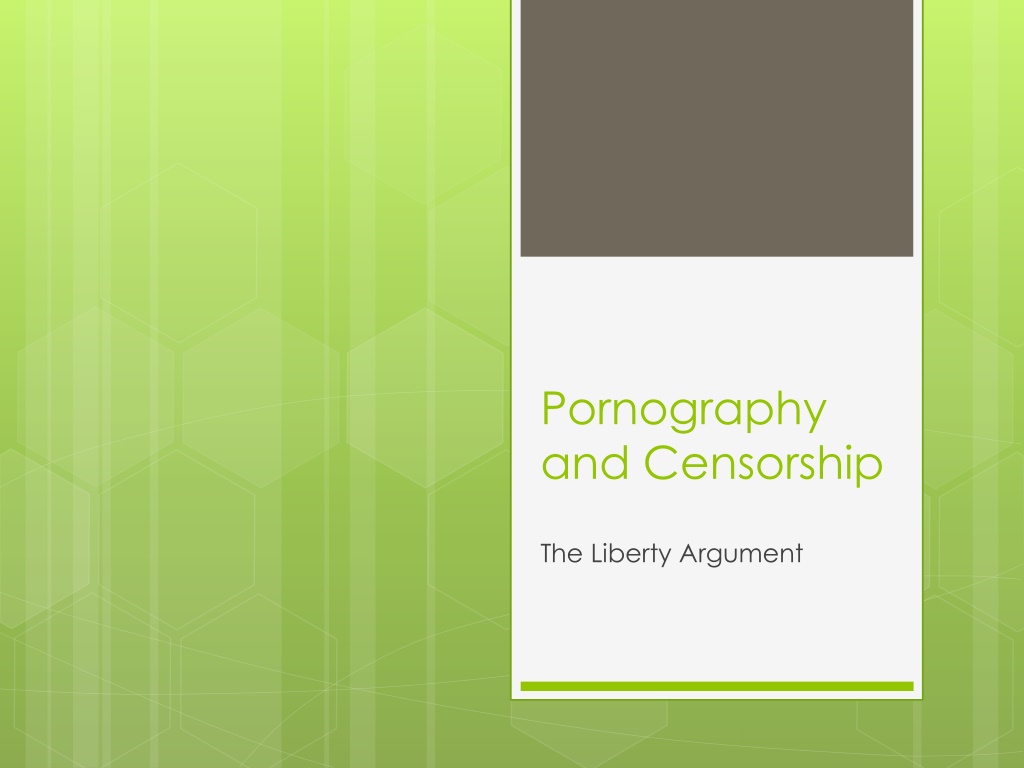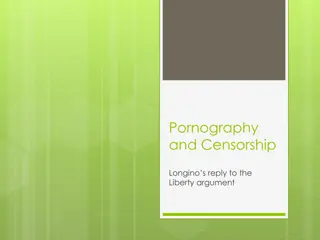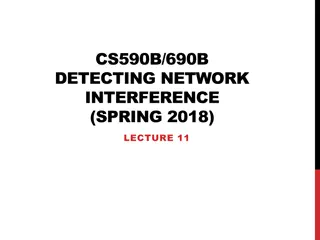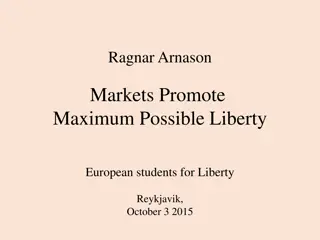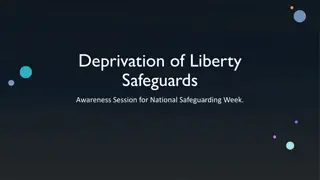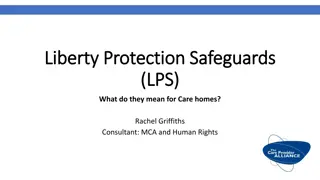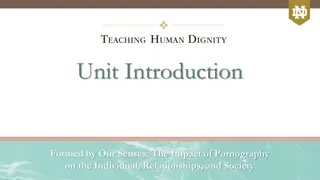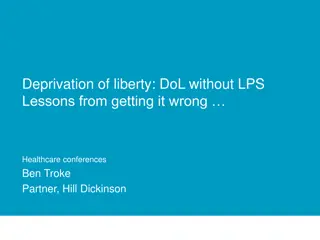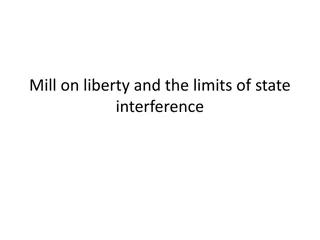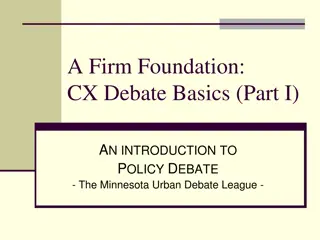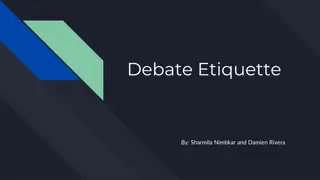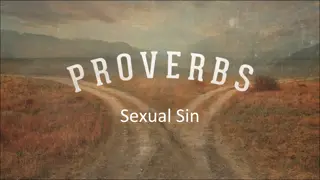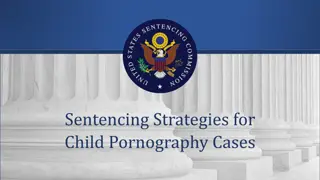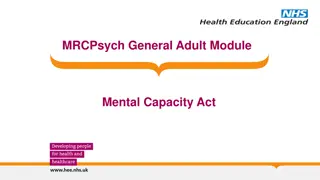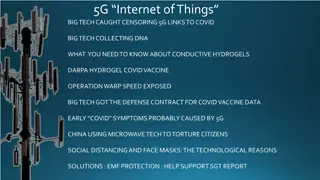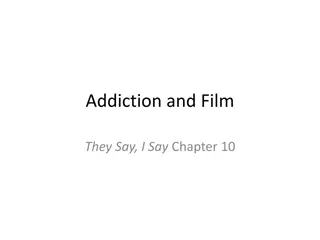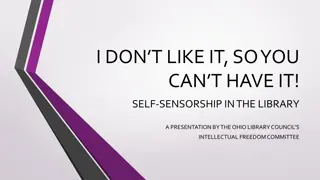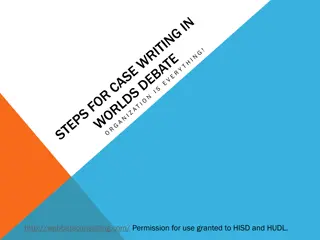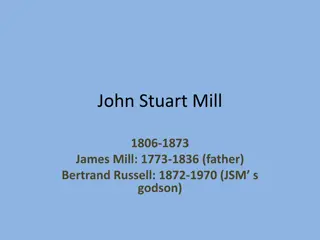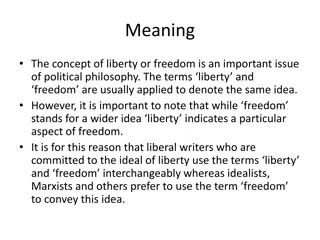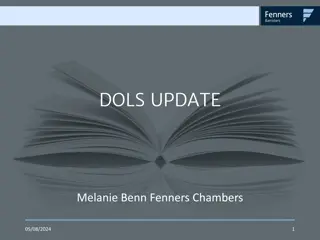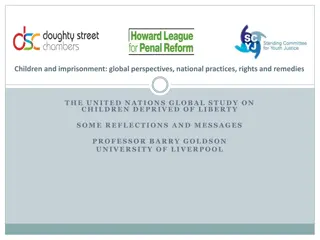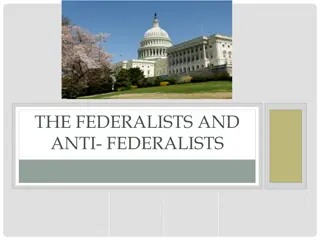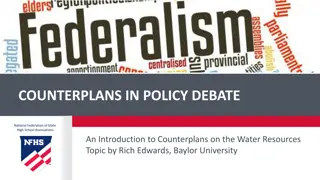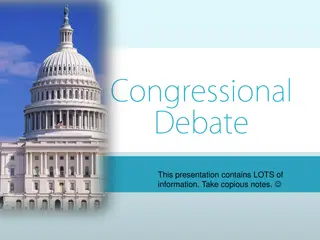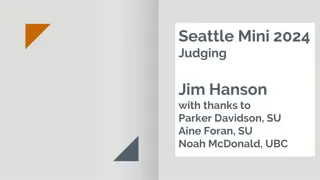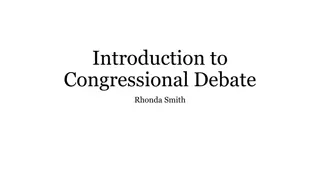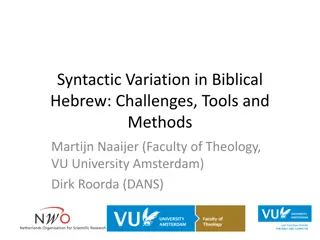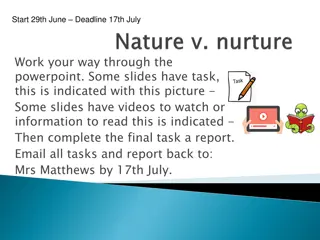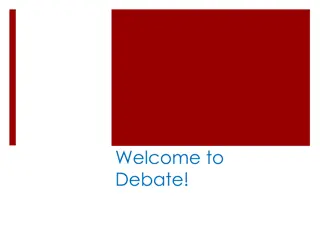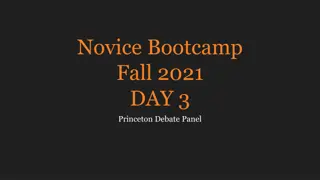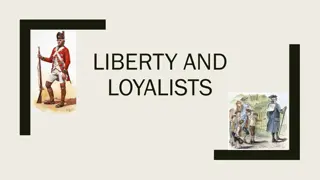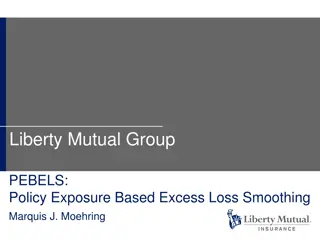Understanding the Liberty and Censorship Debate on Pornography
The debate surrounding pornography and censorship revolves around ethical questions of morality, harm, and freedom of expression. Opposing arguments raise concerns about traditional values, harm toward women, and societal impact, while proponents advocate for individual liberty and autonomy. It delves into the controversial discourse on producing, publishing, and using pornography from various ethical standpoints.
Download Presentation

Please find below an Image/Link to download the presentation.
The content on the website is provided AS IS for your information and personal use only. It may not be sold, licensed, or shared on other websites without obtaining consent from the author. Download presentation by click this link. If you encounter any issues during the download, it is possible that the publisher has removed the file from their server.
E N D
Presentation Transcript
Pornography and Censorship The Liberty Argument
Pornography A working definition: Sexually explicit words or images intended to provoke sexual arousal
Pornography Obscenity: a property thought to render sexually explicit words or images morally or legally illicit Erotica: sexually explicit material that does not demean women but depicts them as consenting, equal partners in sexual activity
The Main Ethical Questions About Pornography Is producing, publishing, or using it morally permissible? Should any of these activities be legally prohibited?
Anti-Pornography Arguments Pornography should be banned because it is an affront to traditional morality: Creating and using pornography is inherently immoral. Pornography is offensive to many who hold traditional or religious beliefs. It promotes immoral acts (adultery, premarital intercourse, and deviant sex, for example). It undermines morality generally. It corrupts and subverts character, traditional family values, religious life, and communities.
Anti-Pornography Arguments Using pornography causes harm: Pornography leads to rape or other sexual violence against women. Pornography degrades or subordinates women while sanctioning pernicious attitudes towards them.
The Main Anti-Censorship Argument As autonomous persons, we are entitled to freedom of speech or expression, freedom of conscience, a right to privacy, and the right to choose our own life plans as we see fit. As long as we do no harm to others, we are entitled to exercise our liberty to create or use pornography if we choose to without interference from the broader community. Only for very weighty reasons may the state restrict our freedom to partake of pornography, and preventing offense to the community is not one of them.
The Liberty Argument Against Censorship Persons possess a right of autonomy, which includes freedom of speech or expression. Since pornography is a form of speech or expression, people have a right to create or publish it, however detested or unsavory the material is to many. It can be legitimately constrained or controlled by the state only if it causes significant harm to others and if there is very strong evidence of such harm.
John Stuart Mill [T]he only purpose for which power can be rightfully exercised over any member of a civilized community, against his will, is to prevent harm to others.
